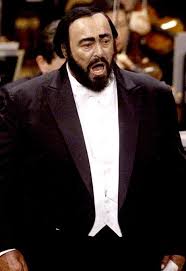The Legacy of Luciano Pavarotti Following His Death

Introduction
The death of Luciano Pavarotti, one of the most celebrated tenors in opera history, on September 6, 2007, marked a significant moment in the world of music. Renowned for his extraordinary vocal talent and charismatic stage presence, Pavarotti’s contributions to the realm of classical music have had an enduring influence. His passing not only left a void in the opera community but also resonated with millions of fans around the globe, emphasising the profound impact that music can have on culture and society.
A Legacy in Opera and Beyond
Pavarotti was born on October 12, 1935, in Modena, Italy. He rose to fame through his powerful tenor voice and captivating performances across the world. Known for his signature arias in operas such as ‘La Bohème’ and ‘Turandot’, Pavarotti gained immense popularity not only in operatic circles but also in pop culture, collaborating with artists from diverse genres.
His death came after a long battle with pancreatic cancer, which he publicly acknowledged, allowing fans to witness both his struggles and his extraordinary spirit during his illness. In the weeks following his death, tributes poured in from around the world, highlighting his formidable legacy and the impact he had on musicians and audiences alike.
Global Tributes and Commemorations
In the wake of Pavarotti’s passing, concerts and tributes were held worldwide to honour his memory. From special performances by renowned opera houses to televised memorials featuring his most iconic performances, the impact of his artistry was celebrated. Many fans and musicians took to social media to share their favourite memories of his performances, illustrating the profound connection Pavarotti had with audiences worldwide.
Additionally, the Pavarotti Foundation was established to support young vocalists, ensuring that his dedication to music continues to inspire future generations. The Foundation aims to provide scholarships and sponsorships to emerging talents, reflecting Pavarotti’s belief in nurturing the next generation of artists.
Conclusion
Luciano Pavarotti’s death was not merely the loss of a talented vocalist; it represented the end of an era in classical music. However, his legacy lives on through the countless artists he inspired and the enduring love for his music. As we remember Pavarotti, we celebrate not only his extraordinary talent but also his commitment to the art of singing. Moving forward, his influence will continue to shape the future of opera and be a beloved part of music history.









